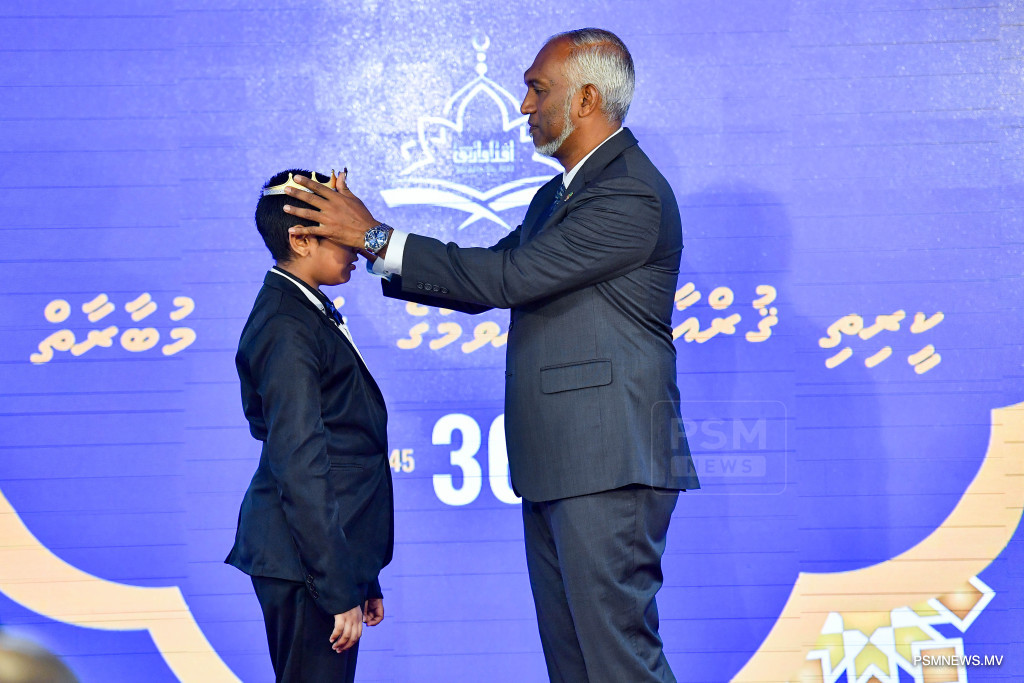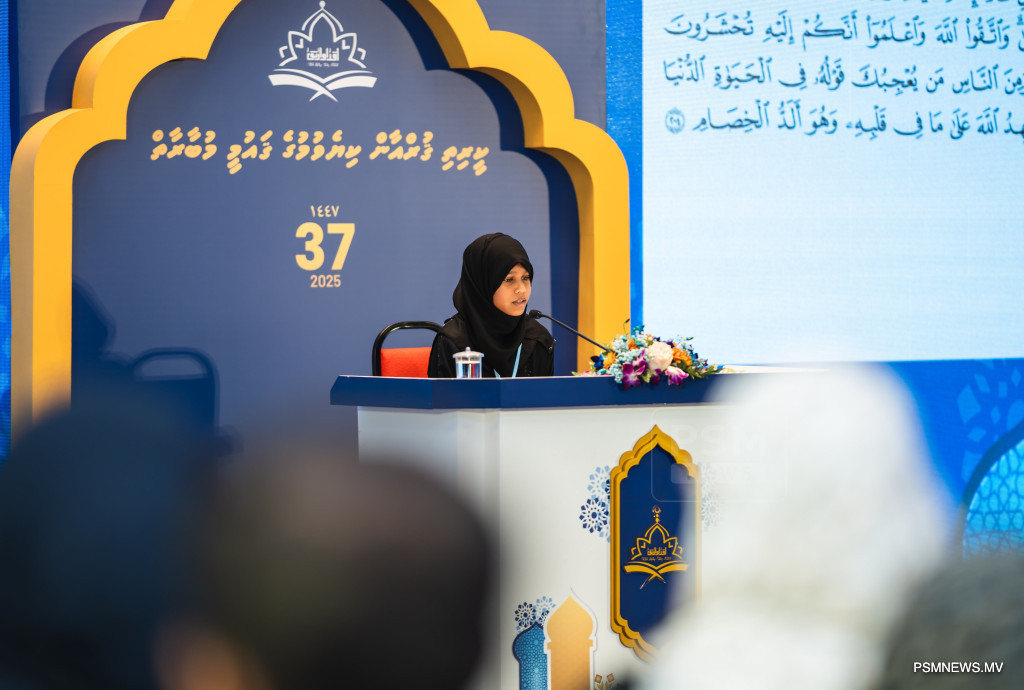
President Dr Mohamed Muizzu has significantly elevated the stature and reward structure of the National Quran Reading Competition, announcing that top winners will be awarded special government scholarships to pursue higher studies up to PhD programmes in a country of their choice.
This unprecedented commitment underscores the administration's pledge to provide the highest possible encouragement for the beautiful recitation of the Holy Quran.
The Presidential decree ensures that the first-place winners across three major catogories—the non-visual recitation, the visual recitation, and the Hafiz category—will receive these fully funded educational opportunities.
This move makes the National Quran Reading Competition arguably the most highly prized competition held in the Maldives, fulfilling the commitment President Dr Muizzu made during last year's awards ceremony.
In addition to the scholarships, the winners of these three individual categories, along with the overall winner, will receive the prestigious Presidential Prize, which includes a substantial cash reward of USD 6,485 and a commemorative plaque of honour. The government has also confirmed that ministry-awarded prizes across all categories will be significantly more attractive than in previous years, with increased avenues for private donors to contribute.
The 37th National Quran Reading Competition, which ran from 18 to 26 September, saw robust participation, highlighting the contest's national significance. A total of 1023 participants from various parts of the country competed, including 582 in the visual recitation category, 412 in the non-visual category, and 29 in the Hafiz category.
Established in 1981, the annual contest is the nation’s oldest and longest-running uninterrupted Quran recitation competition, organised directly by the government. Results for this year’s competition are scheduled to be announced in early October.
Competition to Introduce Rigorous Screening Process for Enhanced Quality
In a related development, the competition is set to implement a new screening process for all participants starting next year. The decision, announced by the Holy Quran Center, aims to significantly elevate the quality of the competition, which sees an ever-increasing number of participants from across the nation's capital and provinces.
Ali Waheed Abdul Rahman, Academic Coordinator of the National Center for the Holy Quran, explained the upcoming changes to PSM News, stating that the competition will be structured into different rounds, with each participant undergoing a mandatory screening.
While schools traditionally conduct internal screenings for their students, the new system will extend this initial evaluation to all entrants, including those from private Quran classes and individual applications, ensuring a comprehensive assessment of readiness, he detailed.

Ali Waheed noted that concerns had arisen regarding some participants not demonstrating the requisite seriousness or quality expected in a national-level contest, highlighting instances of children entering who were not adequately prepared for such a prestigious contest.
The new screening initiative is designed to address these issues, ensuring that only the most competitive and highest-quality children advance through the stages, ultimately reaching the final rounds. The updated rules, incorporating these quality-focused amendments, are slated to be officially gazetted.
